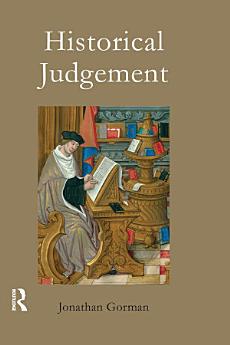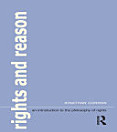Historical Judgement
11/2014 · Routledge
E‑kniha
320
Počet strán
family_home
Vhodné
info
reportHodnotenia a recenzie nie sú overené Ďalšie informácie
Táto e‑kniha
The historical profession is not noted for examining its own methodologies. Indeed, most historians are averse to historical theory. In "Historical Judgement" Jonathan Gorman's response to this state of affairs is to argue that if we want to characterize a discipline, we need to look to persons who successfully occupy the role of being practitioners of that discipline. So to model historiography we must do so from the views of historians. Gorman begins by showing what it is to model a discipline by using recent philosophy of law and philosophy of science. There are different models at work, whose rivalry and resolution are to be historically understood. With this approach in place he is able to develop the history of historiography and explore the character of historiography as presented by historians. He reveals that historians conform to various norms - that historians now and in the past have agreed and disagreed about the same set of interrelated matters: truth-telling, moral judgement and the synthesis of facts - and it is this internal understanding that we need to recover if we are to arrive at a correct characterization of the discipline of historiography. Demonstrating how the practice of historiography requires choices and therefore the exercise of judgement, Gorman is able to show that in their making of judgements historians enjoy the immense benefit of hindsight. He shows how, in reflecting on their own discipline, historians have typically failed to attend adequately to the history of historiography, neglecting to situate previous historians within their historical contexts, or to pay adequate attention to the fact that present historians, too, are within a context that will change. In addition, Gorman's approach, which emphasizes the power and necessity of choice, and which rests on the pragmatic holistic empiricism of Quine, shows postmodernism not to be the threat that some historians feel it to be, indeed, it is shown to be a radical form of empiricism. Gorman shows how the historical enterprise may be established in our factual and moral understanding in the light of our choices and commitments to a shared world. "Historical Judgement" is an original and important contribution to the philosophy of history. By bringing together the ideas of historians and philosophers, Gorman presents a much more practitioner-focused examination of the discipline of history, one that will, hopefully, encourage historians to think more about the nature of what they do.
Ohodnoťte túto elektronickú knihu
Povedzte nám svoj názor.
Informácie o dostupnosti
Smartfóny a tablety
Nainštalujte si aplikáciu Knihy Google Play pre Android a iPad/iPhone. Automaticky sa synchronizuje s vaším účtom a umožňuje čítať online aj offline, nech už ste kdekoľvek.
Laptopy a počítače
Audioknihy zakúpené v službe Google Play môžete počúvať prostredníctvom webového prehliadača v počítači.
Čítačky elektronických kníh a ďalšie zariadenia
Ak chcete tento obsah čítať v zariadeniach využívajúcich elektronický atrament, ako sú čítačky e‑kníh Kobo, musíte stiahnuť príslušný súbor a preniesť ho do svojho zariadenia. Pri prenose súborov do podporovaných čítačiek e‑kníh postupujte podľa podrobných pokynov v centre pomoci.






